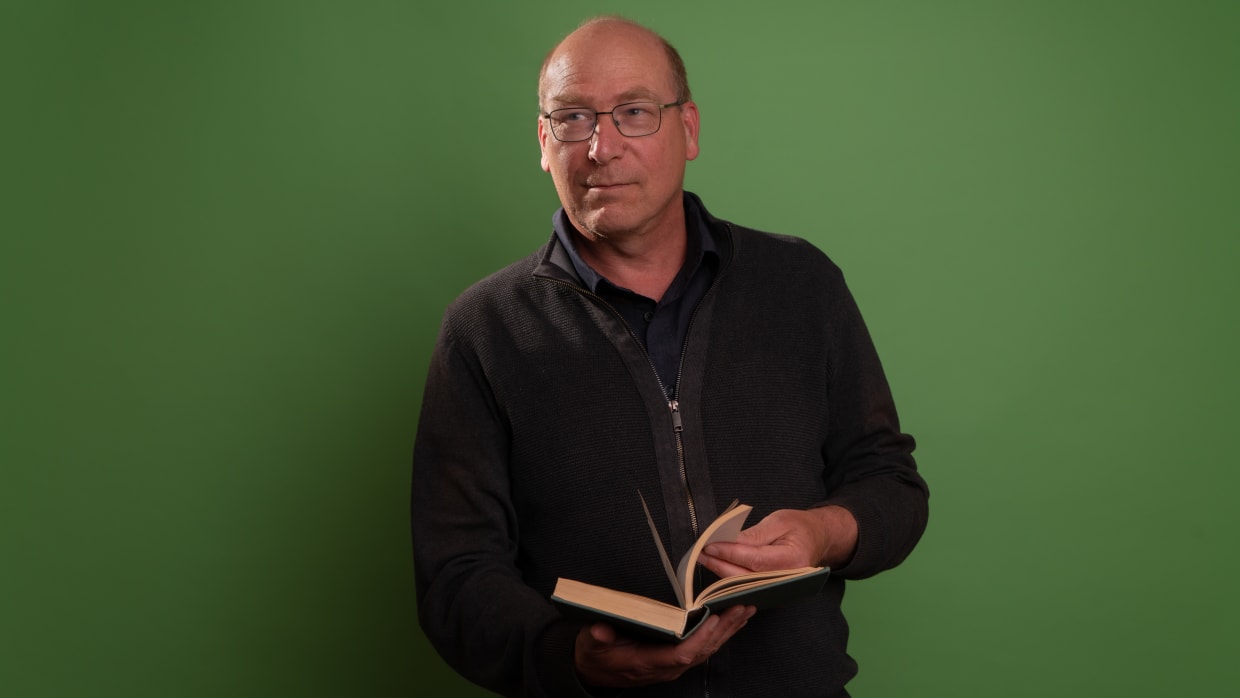
Han van der Maas | Stop the ‘Vernederlansing’!
Ideas to make the vehicular language at university and in science Dutch again are disastrous, thinks Han van der Maas. ‘We face gigantic challenges, such as climate change, polarization, aging, poverty and international conflicts. We should be happy with every motivated and bright student from abroad who wants to contribute to our society.’
UvA’s Department of Psychology ranks remarkably high in all international rankings: it is the best in continental Europe. The department is very successful in attracting research funding and also puts a lot of energy into improving educational programs. These educational programs are invariably rated highly by students and review committees. The atmosphere is pleasant with a healthy mix of nationalities among staff and students. The job market prospects for students have long been good. It is widespread misconception that studying psychology trains for unemployment. When it comes to job market opportunities, psychology ranks somewhere in the middle but above other gamma and alpha studies.
You can see, after such an introduction, something must be horribly wrong. So bad that someone like Pieter Omtzigt leads a Chamber-wide movement, submits motions, summons the minister, and referring specifically to psychology programs. What is this new affair that the House of Representatives is so concerned about?
We’re talking English!
I write this in shame, of course, but there is no denying it. It began long ago when we eliminated Dutch-language scholarly journals and incorporated English-language books into our teaching. I'm talking about half a century ago now. I remember a conference all the way in Drenthe where we gave our talks in English. No one understood a thing.
But more recently we also give the lectures in English. No Dutch student complains about this but of course we have carefully selected them for this. In the bachelor, these students may opt for Dutch-language working groups. Writing is also allowed in Dutch and English. But these are only excuses, of course. We are wasting Dutch as an academic language, part of our national heritage.
Admittedly, we do our poor Dutch students a great disservice. They can still go to a psychology program but soon they will be competed away by intrinsically motivated hard-working students from elsewhere, fortune seekers who come to our internationally highly regarded programs. And because they are not addressed in their native language, their limited working memory is overloaded. How can they ever learn the t-test? No wonder they always confuse correlation and causation. We regularly see students running into doorways and cycling through red lights. Totally confused those kids.
Pieter Omtzigt, by the way, did not invent this new affair himself. He has been taken in by Beter Onderwijs Nederland (BON), led by the Netherlands' most overrated philosopher Ad Verbrugge, a Heidegger adept. Heidegger, for those who don't know, excelled in vague pretentious platitudes about modern society that are incoherent even in the original German. He was a staunch supporter of the Nazis and never apologized for this. If we must cancel anyone it is Heidegger, but Verbrugge wrote his dissertation on it. By the way, I am not going to suggest this to Omtzigt. Unlike Verbrugge, I have no inclination to dictate to other disciplines how they should do their work.
Verbrugge’s own scholarly contributions are not that frequent. His last publication, according to his own website, was in Christen Democratische Verkenningen in 2020. Credit where credit is due, I never did (one desk-reject after another). His Wikipedia page, no doubt self-written, teaches us a thing or two more. In his most popular book, he describes Western society as a “culture adrift,” namely away from traditional (family) values. But luckily he is also opposed to neo-liberalism. If you don't have time to read his work, he is also a singer. I quote, “In his song lyrics he expresses in a more poetic way the same thoughts and feelings that underlie his books and essays.” Funny enough in English!
Verbrugge’s main argument, already rejected by the courts, is the law. The law states that Dutch is the language of instruction unless there are good reasons not to do so (if the specific nature, organization or quality of the education or the origin of the students makes it necessary, in accordance with a code of conduct established by the institution's board). There are plenty of such reasons for most academic programs: the academic language of instruction is English, all literature is in English, science is more international than ever, and it is precisely thanks to our choice for English that we are among the best in the world.
Just picture our education back in Dutch, a scientific Nexit. The successful Psychology programs lose half of their students, painful and costly reorganizations put these departments on hold for years, top researchers disappear and the supply to the labor market stagnates. And this does not only apply to psychology. A very strict interpretation of the law, called for by BON and Omtzigt, will seriously damage Dutch science and its education.
The Netherlands is now an international hotspot of knowledge development thanks to English-language science education. Thriving universities are a driver of economic, technological and cultural developments that benefit society as a whole. We face gigantic social and technological challenges, such as climate change, polarization, aging, poverty and international conflicts, to name but a few. We should be happy with every motivated and bright student from abroad who wants to contribute to our society. The fixation on an outdated law and the populist, conservative agenda are the greatest danger to our top universities.
Han van der Maas is full professor psychological methods.

